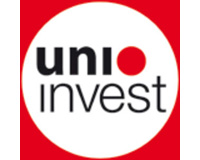Private equity firms Patron and TPG are to take control of troubled Dutch property company Uni-Invest.
The partners won the backing of debt investors for their plan to restructure Uni-Invest, which has a portfolio of 203 secondary and tertiary Dutch office and industrial assets, and €603m (£494m) of securitised debt.
The dual-track process, run by special servicer Eurohypo and its adviser, Cairn Capital, pitched Patron and TPG’s “credit bid” against a consensual restructuring proposal by Valad Europe.
Patron and TPG will now buy the company’s defaulted senior loan and immediately return 40% – €144m – of the outstanding note balance to class A noteholders.
The remaining 60% – €215m – will be restructured into four-year notes and offered to existing senior investors. The €243m of junior class B, C and D investors in the CMBS will be wiped out.
Securitised debt experts said it was the prospect of the controlling class As receiving an immediate payment that tipped the balance in favour of the partners’ bid. Valad’s consensual option was to keep the CMBS structure in place for four years.
This proposal, which would have seen Valad sell off the portfolio over four years, was backed by junior noteholders because it raised the possibility of recouping some of their investment, but was ultimately voted down by the senior investors.
Barclays Capital analyst Christian Aufsatz said: “It’s a relatively good outcome for the class A, and a not completely unexpected result.”
Eurohypo said the decision ends a 10-month process “that had sought to protect the value of the noteholders’ investment after the company’s efforts to find additional equity were discontinued in June 2011.”
The workout of Opera Uni-Invest was widely seen as a test case because it was the first European CMBS to reach maturity without repaying.
Consensual plans still credible
While both proposals put forward in the dual-track process had their merits, in the end it came as no surprise that investors took the option of recouping some money upfront.
While the result could be interpreted as a blow for any future “consensual restructuring proposals”, as put forward by Valad, CMBS experts have warned that each case must be considered on its own merits and it is still a legitimate workout option.
Valad chief executive Martyn McCarthy said he “continues to believe that consensual restructuring of future CMBS defaults offers a credible alternative to investors who wish to retain control post-restructuring, while allowing the value of their underlying asset collateral to be maximised and disposed of in an orderly manner”.











